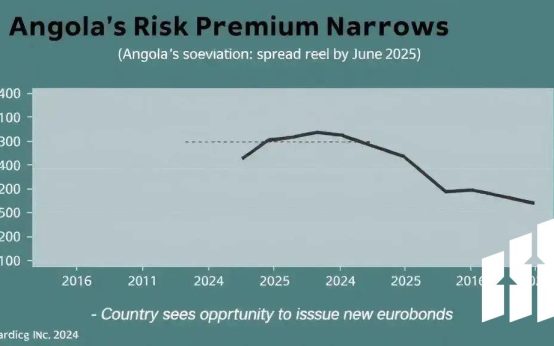How to avoid falling into a debt trap involves understanding its causes, recognizing warning signs, practicing smart budgeting, managing existing debt responsibly, and setting clear financial goals to maintain control and build a debt-free future.
How to avoid falling into a debt trap is a question many people wonder about. Have you ever felt overwhelmed by bills or unsure where your money went? Let’s explore some real ways to keep debt from taking over your life.
understanding what a debt trap really is
A debt trap occurs when someone continuously borrows money to pay off existing debt, creating a cycle that is difficult to break. This situation often arises when interest rates and fees accumulate faster than payments can reduce the principal amount. It’s like a financial quicksand — the more you struggle, the deeper you sink.
Understanding what causes a debt trap is key to avoiding it. Common causes include relying heavily on credit cards, payday loans, or other high-interest borrowing without a clear repayment plan. Unexpected expenses or income loss can also push people into this cycle.
How a Debt Trap Works
When you borrow money and can only afford minimum payments, most of your payment goes to interest and fees, not the borrowed amount. This means your debt stays about the same or can even grow. Over time, monthly payments become a large part of your income, leaving little for essentials.
Recognizing the Signs
If you find yourself borrowing more just to cover existing debts, missing payments, or feeling stress about money constantly, these could be signs of entering a debt trap. It’s important to address these issues before they worsen.
Preventing this cycle starts with awareness and making informed financial choices. Educate yourself on the terms of any credit you use, budget realistically, and avoid borrowing beyond your means.
common warning signs of falling into debt

Recognizing the warning signs of falling into debt early can help you take action before the situation worsens. One major sign is relying on credit cards or loans to pay for everyday expenses. This often means your income isn’t covering basic needs.
Increasing Minimum Payments
If you notice that your monthly payments are mostly going toward interest instead of reducing the principal amount, it’s a clear signal of trouble. This keeps debt balances high and payments never fully catch up.
Missing Payments or Paying Late
Struggling to pay bills on time, or missing payments entirely, can lead to late fees and higher interest rates. This creates a cycle where debts grow faster than you can repay them.
Contact from Creditors
If you begin receiving frequent calls or notices demanding payment, it indicates your debt is slipping out of control. Ignoring these contacts may lead to collection actions or damage to your credit score.
Feeling stressed or anxious about money all the time is another important warning sign. Mental health can suffer when financial burdens become overwhelming, so it’s important to address these signals early.
Being aware of these signs helps you stay proactive. The sooner you recognize the problem, the more options you have to regain control of your finances.
smart budgeting to keep your finances healthy
Creating and sticking to a smart budget is essential for keeping your finances healthy and avoiding debt. Start by tracking all your income and expenses to understand where your money goes each month. This clear picture helps you make informed choices.
Prioritize Necessary Expenses
List your essential costs first, such as rent, food, utilities, and transportation. Ensure these are covered before spending on non-essentials. This approach prevents overspending and helps maintain stability.
Set Realistic Limits
Allocate a fixed amount for discretionary spending like entertainment or dining out. Be realistic about these limits and adjust them as needed to avoid temptation that leads to overspending.
Build an Emergency Fund
Saving even a small amount regularly can create a cushion for unexpected expenses. This fund reduces the need to borrow money during emergencies, helping you stay out of debt.
Use Tools and Apps
Many budgeting apps and tools help automate tracking and provide reminders. Using technology can make budgeting easier and more accurate.
Remember, consistency is key. Regularly review and adjust your budget to fit your changing needs and goals. Smart budgeting not only prevents debt but also sets the foundation for financial growth.
how to manage existing debt without stress

Managing existing debt without stress involves a combination of careful planning and smart strategies. Start by listing all your debts, including balances, interest rates, and minimum payments. This helps you understand the full scope of what you owe.
Consider the Snowball and Avalanche Methods
The snowball method suggests paying off the smallest debts first to build momentum and motivation. The avalanche method focuses on paying off debts with the highest interest rates first to save money over time. Choose the one that fits your personality and financial situation.
Create a Debt Repayment Plan
Set clear monthly goals for how much you will pay toward your debts. Automate payments when possible to avoid missed deadlines, which can cause fees and increase stress.
Communicate with Creditors
If making payments is difficult, contact your creditors to discuss options. Many offer hardship programs, lower interest rates, or more flexible terms that can ease your burden.
Focus on Budgeting and Reducing Expenses
Cut unnecessary costs and redirect those savings toward debt repayment. Even small reductions can add up and help you pay off debt faster.
Staying positive and patient is important, as managing debt takes time. Celebrate small wins and remember that controlling your debt leads to greater financial freedom.
tips for building a debt-free future
Building a debt-free future starts with clear goals and smart financial habits. Begin by living within your means and avoiding unnecessary borrowing. This creates a strong foundation for lasting financial health.
Create a Savings Plan
Regularly saving a portion of your income helps build an emergency fund and supports future investments. Aim to save at least three to six months’ worth of living expenses to protect yourself against unexpected costs.
Set Financial Goals
Define short-term and long-term financial goals, such as paying off debt, buying a home, or retirement. Having goals provides motivation and direction for your money management.
Maintain Good Credit Habits
Pay bills on time, keep credit card balances low, and monitor your credit report. Good credit habits make it easier to access favorable loan terms if you ever need to borrow responsibly.
Educate Yourself Continuously
Understanding personal finance empowers you to make better decisions. Follow trusted sources, attend workshops, or read books on money management.
Consistency and discipline are key to staying debt-free. Celebrate milestones along the way and adjust your strategies as life changes. This proactive approach helps you enjoy financial freedom and peace of mind.
Taking control of your financial future
Learning how to avoid falling into a debt trap is essential for building a secure and stress-free life. By understanding debt risks, recognizing warning signs, and practicing smart budgeting, you can protect yourself from financial burdens.
Managing existing debt carefully and planning ahead with clear goals will help you stay on track. Remember, patience and consistency make a big difference when working toward a debt-free future.
With the right tools and mindset, financial freedom is within your reach. Start making smart choices today to enjoy peace of mind tomorrow.
FAQ – How to avoid falling into a debt trap
What is a debt trap and how does it start?
A debt trap happens when borrowing continues to cover existing debts, with interest and fees piling up, making it hard to escape.
What are common signs that I might be falling into a debt trap?
Relying on credit for daily expenses, missing payments, and frequent calls from creditors are key warning signs to watch for.
How can smart budgeting help me avoid debt?
Smart budgeting helps by prioritizing expenses, setting spending limits, and building an emergency fund to handle unexpected costs without borrowing.
What methods can I use to pay off existing debt without stress?
Using the snowball or avalanche repayment methods and communicating with creditors for better terms can reduce stress while managing debt.
How do I build a debt-free future?
Setting clear financial goals, saving regularly, maintaining good credit habits, and educating yourself about money management build a strong debt-free foundation.
When should I seek help if I am struggling with debt?
If you cannot keep up with payments or feel overwhelmed by money stress, seeking professional advice or contacting creditors for options is important early on.


 Miran Highlights Dual Goals of Fed and Interest Rate Outlook
Miran Highlights Dual Goals of Fed and Interest Rate Outlook  Are You a Robot? Unusual Activity Detected on Bloomberg
Are You a Robot? Unusual Activity Detected on Bloomberg  Keir Starmer Leads Business Delegation to India for Trade Pact
Keir Starmer Leads Business Delegation to India for Trade Pact  Takaichi Appoints Ex-Finance Minister as Secretary General of LDP
Takaichi Appoints Ex-Finance Minister as Secretary General of LDP  Argentina Continues Dollar Sales Amid Weakened Peso Crisis
Argentina Continues Dollar Sales Amid Weakened Peso Crisis  White House Calls on Democrats to Resolve Ongoing Government Shutdown
White House Calls on Democrats to Resolve Ongoing Government Shutdown